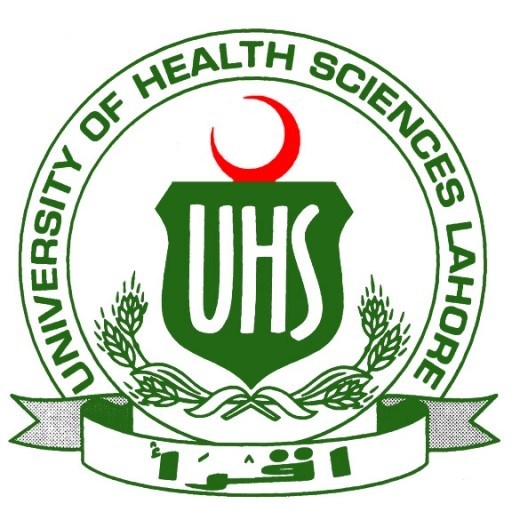Public Health at the University of Health Sciences offers a comprehensive program designed to equip students with the knowledge and skills necessary to improve health outcomes and promote well-being across diverse populations. The curriculum covers fundamental areas such as epidemiology, biostatistics, health policy and management, environmental health, behavioral sciences, and social determinants of health. Students will engage in both theoretical coursework and practical training, including internships and fieldwork, to develop a thorough understanding of public health issues and effective intervention strategies. The program prepares graduates for careers in health promotion, disease prevention, health education, policy development, and health program management. Emphasizing research, critical thinking, and leadership, the education aims to foster versatile professionals capable of addressing complex health challenges at local and global levels. Graduates will be well-equipped to contribute to evidence-based decision-making, improve healthcare systems, and advocate for equitable health policies. With a strong focus on interdisciplinarity and community engagement, the program also encourages involvement in current public health initiatives and innovative health solutions. The faculty comprises experienced experts dedicated to mentoring students and supporting their professional growth. Upon completion, students will earn a Bachelor's or Master's degree in Public Health, opening doors to diverse opportunities in governmental, non-governmental, and international organizations committed to advancing public health.
Program content: The Bachelor of Public Health program at the University of Health Sciences is designed to provide students with comprehensive knowledge and practical skills necessary for a career in health promotion, disease prevention, and health policy development. The curriculum covers a wide range of topics including epidemiology, biostatistics, environmental health, health management, health education, and social determinants of health. Students will engage with theoretical concepts as well as practical applications through laboratory work, internships, and community projects. The program emphasizes evidence-based approaches to public health issues, equipping graduates to analyze health trends, develop intervention strategies, and implement policies that improve population health outcomes. Throughout the coursework, students will learn about global health challenges, health systems, and the roles of different stakeholders in healthcare. The program also offers specialization options such as health policy and management, community health, and environmental health. Additionally, students will develop competencies in communication, leadership, and critical thinking, preparing them to work effectively in multidisciplinary teams and diverse settings. The educational process includes lectures, seminars, case studies, and project work, fostering an interactive learning environment. Upon graduation, students will be qualified for roles in government agencies, non-governmental organizations, healthcare institutions, and international health organizations. They will be capable of conducting research, designing health programs, and advocating for public health policies that promote wellness and prevent disease at local, national, and global levels. The program aims to produce competent public health professionals who can respond to contemporary health challenges and contribute to sustainable health development.
Programme requirements for the Bachelor of Public Health at the University of Health Sciences include a combination of general admission criteria, specific academic prerequisites, and program-specific conditions. Applicants must hold a completed secondary education diploma or equivalent recognized by the university, with a focus on science subjects such as biology, chemistry, or mathematics being highly recommended. Candidates are generally required to demonstrate proficiency in the English language, typically via standardized tests such as TOEFL or IELTS, with minimum scores set by the university. In addition to academic qualifications, applicants may need to submit a motivation letter outlining their interest in public health and relevant extracurricular activities or work experience related to healthcare or community service. The selection process typically involves a review of academic records, language proficiency, and personal statements, with some programs possibly including an interview component.
For current students or applicants aiming to transfer from other programs, relevant coursework and GPA thresholds are considered to ensure compatibility with the curriculum. The programme also expects students to fulfill certain health and immunization requirements, confirmed through medical examinations, to ensure safety during practical training sessions. As the curriculum includes practical internships, candidates should have the necessary permissions and legal documentation to participate in placements within healthcare facilities or public health organizations. Financial documentation or proof of funding may be required for international students at the application stage, along with valid visas or residence permits. The university places a strong emphasis on interdisciplinary knowledge, analytical skills, and commitment to public health principles, so applicants with demonstrated interest or previous experience in health promotion, epidemiology, statistics, environmental health, or related fields may have a competitive advantage. Ultimately, the goal of these requirements is to select motivated individuals capable of contributing effectively to the healthcare system and public health initiatives, ensuring they meet the academic, professional, and ethical standards expected by the university.
The financing of the Public Health program at the University of Health Sciences is structured to accommodate a diverse range of students through various funding options. Tuition fees for international students are established in accordance with the university’s regulations and are reviewed annually to reflect inflation rates and institutional costs. Domestic students often have access to state-funded grants, scholarships, and subsidies provided by the government or university itself, aimed at promoting higher education in health sciences. These financial aids are awarded based on merit, need, or specific eligibility criteria such as academic performance, income level, or participation in community health projects.
The university also collaborates with health authorities and private sponsors to provide additional scholarships and financial assistance programs, ensuring that financially disadvantaged students are able to pursue their studies without undue hardship. Students are encouraged to apply for external funding sources, including government loans and international education grants, which can cover tuition costs and living expenses. The university offers comprehensive guidance to prospective and current students regarding the application processes for these financial aid options, including deadlines and required documentation.
For international students, the university offers numerous scholarship programs specifically designed to attract talented students from around the world. These scholarships may cover partial or full tuition fees and sometimes include allowances for accommodation and travel expenses. Moreover, students pursuing internships or part-time employment within affiliated healthcare institutions may be eligible for stipends or wages that help offset living costs.
The university also promotes participation in research projects and community health initiatives, where students can earn stipends or receive funding that contributes to the overall financing of their studies. Additional financial support is sometimes available through alumni networks and health organizations as part of efforts to foster the next generation of public health professionals.
Overall, the financing structure of the Public Health program is designed to be inclusive and supportive, providing various pathways for students to fund their education while emphasizing access to quality higher education in health sciences. The university regularly updates its financial aid policies and communicates these opportunities through official channels to ensure transparency and accessibility for all prospective and current students.
Public Health at the University of Health Sciences offers a comprehensive curriculum aimed at preparing students to address the complex health challenges faced by populations today. The program emphasizes the development of skills in epidemiology, biostatistics, health policy, environmental health, and social determinants of health. Students are trained to analyze health data, implement health promotion strategies, and develop policies to improve public health outcomes. The program is designed to combine theoretical knowledge with practical experience, including internships and project work in community health organizations. Graduates will be equipped to work in various settings such as government agencies, non-governmental organizations, research institutions, and healthcare facilities. The curriculum includes courses on disease prevention, health education, healthcare management, and global health issues, ensuring a well-rounded education. The program also encourages interdisciplinary collaboration and innovative research, fostering skills necessary for leadership roles in the health sector. The faculty includes experienced professionals and researchers dedicated to advancing public health practices. With a focus on both rural and urban health challenges, the program prepares students for the diverse needs of populations in different environments. Students have access to state-of-the-art laboratories and learning resources, enhancing their practical skills. The program aims to produce graduates who are capable of designing, implementing, and evaluating public health interventions, with a strong ethical foundation and cultural competence. By integrating community engagement and evidence-based practices, the program ensures that graduates can effectively contribute to the improvement of health standards locally and globally.





